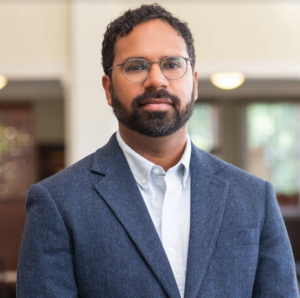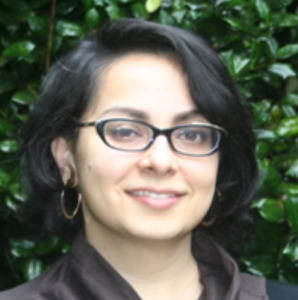Over the last month, our community has celebrated the many contributions of Asian Americans and Pacific Islanders to all aspects of American life and culture. According to the U.S. Census Bureau, 6.1% of the U.S. population identifies as Asian or Pacific Islander (not including mixed race individuals). Only 3.2% of librarians in the U.S. identify as Asian, according to the Bureau of Labor Statistics. In fact, librarianship is one professional in which there are significant disparities in racial and ethnic representation.
Emory Libraries Diversity, Equity, and Inclusion Committee works to address these and other disparities for historically underrepresented and oppressed groups in our community by asking critical questions around representation and access. When it comes to representation, we ask “Can our users and library workers see themselves represented in our space, staffing, and services?” As a start, here are the stories of some of the members of the Emory Libraries community who represent a few of the many cultures and experiences of Asian-Americans and Pacific Islanders.
Kyle Tanaka – Graduate Assistant, Research and Engagement and Scholarly Communications (RESC) Division
Tell us about your heritage. Are there ways your heritage influences your work in libraries?
I am half-Japanese, half-mixed European white (hapa, yonsei). Some of the work I have done has either directly or indirectly involved that heritage (e.g. curating lists of API works and resources, participating in DEI initiatives), but it has more generally informed how I approach issues of race and diversity in my work.
Do you have any advice for Asian-American and Pacific Islander students today? Is there anything you wish you had known sooner in life?
My advice, especially to Asian-Americans, is to take your race and heritage seriously. Perhaps because I’m of Japanese-descent, the Japanese side of my family rarely explicitly talked about issues of race or of being Asian in the U.S. Because of that, I tended to regard my race as of minor importance in terms of how I think of myself. However, I’ve since come to realize my experience is a common one. Many Japanese Americans whose grandparents or great-grandparents were interned during WWII have expressed that their elders are loath to discuss their experiences and just want to “move on.” What I realized is that that itself *is* part of being of Japanese-American descent. You live in a state in which you are raced as Asian, yet many of the traditions are downplayed or lost. So recognize that, and take that recognition as impetus to think about what it means to inherit that kind of past.
Gautham Reddy – South Asian Studies and Religion Librarian
 Tell us about your heritage. Are there ways your heritage influences your work in libraries?
Tell us about your heritage. Are there ways your heritage influences your work in libraries?
Both of my parents moved to the United States from India and I was born here. So I identify as Indian American. I think my heritage definitely shapes the way I think about our collections. Emory’s South Asia collection is nationally renowned for research and teaching – but it is also an invaluable resource for self-exploration. I know there are many students, faculty, and staff members who are attracted to our South Asia collection because they want to learn more about their heritage and where their families come from. So I definitely factor that in as I make my selections about what’s important in growing our collections. Currently, I’m excited to be working on bringing in more South Asia LGBTQ materials and graphic novels!
Do you have any advice for Asian-American and Pacific Islander students today? Is there anything you wish you had known sooner in life?
I think it’s important to know you don’t need to be who people expect you to be. There is a lot of pressure on Asian Americans to excel in STEM fields. This is part of the model minority stereotype. It’s okay to explore your interests and to make mistakes. It’s okay to advocate for yourself.
Guo-hua Wang – Chinese Studies Librarian and Head of the International Area Studies
Tell us about your heritage. Are there ways your heritage influences your work in libraries?
I grew up in China. My life experience in China and the knowledge about China made me an expert on China. I can help the faculty and students of Chinese Studies by building an excellent collection for their researches and studies; provide them with in-depth advice and suggestions during the consultation sessions, etc.
Do you have any advice for Asian-American and Pacific Islander students today? Is there anything you wish you had known sooner in life?
Embrace the best parts of the two or multi-cultures, bridge them.
Saira Raza – Business Librarian, Goizueta Business Library
Tell us about your heritage. Are there ways your heritage influences your work in libraries?
I am mixed heritage – my dad is South Asian and my mom is white American (Scottish descent). On my dad’s side, our identity is complicated by a lot of movement around South Asia because of political and ethnic violence, so while my dad was born and raised in West Bengal, India, all of my cousins were born in Karachi, Pakistan. And my siblings and I were born in the U.S. Like I said, it’s complicated.
I grew up in a predominantly white school system, so although I am mixed, I still experienced a sense of “otherness” and have always been intrigued by this phenomenon. As I pursued a career in libraries, I benefited a great deal from scholarship and professional programs that help people from underrepresented groups find their way into academic libraries. It’s one reason I’m very passionate about diversity, equity, and inclusion work in libraries – to ensure that more people from underrepresented groups can be seen in our spaces and create a better experience for all users.
Do you have any advice for Asian-American and Pacific Islander students today? Is there anything you wish you had known sooner in life?
One thing that I have valued in my academic life are the connections and friendships I’ve developed with people from other underrepresented cultures. In particular, I think it’s important to be a true ally to those communities who suffer the most from systemic violence in our society, for example by fighting anti-Black sentiments in the Asian community. While we have many of our own problems, the API community does possess a certain amount of privilege (e.g. “the model minority”) that needs to be acknowledged and even leveraged to diminish the disparities in our lived experiences.
Recommended for your reading:
_________________________________________________________________________________________
- Asian American and Pacific Islander Heritage Month: Scholarly Journals and E-books
-
Asian American and Pacific Islander Heritage Month: Primary Sources
-
Asian American and Pacific Islander Heritage Month: Streaming Video and Multimedia …
-
Celebrate Asian American and Pacific Islander Heritage Month with Emory Libraries
